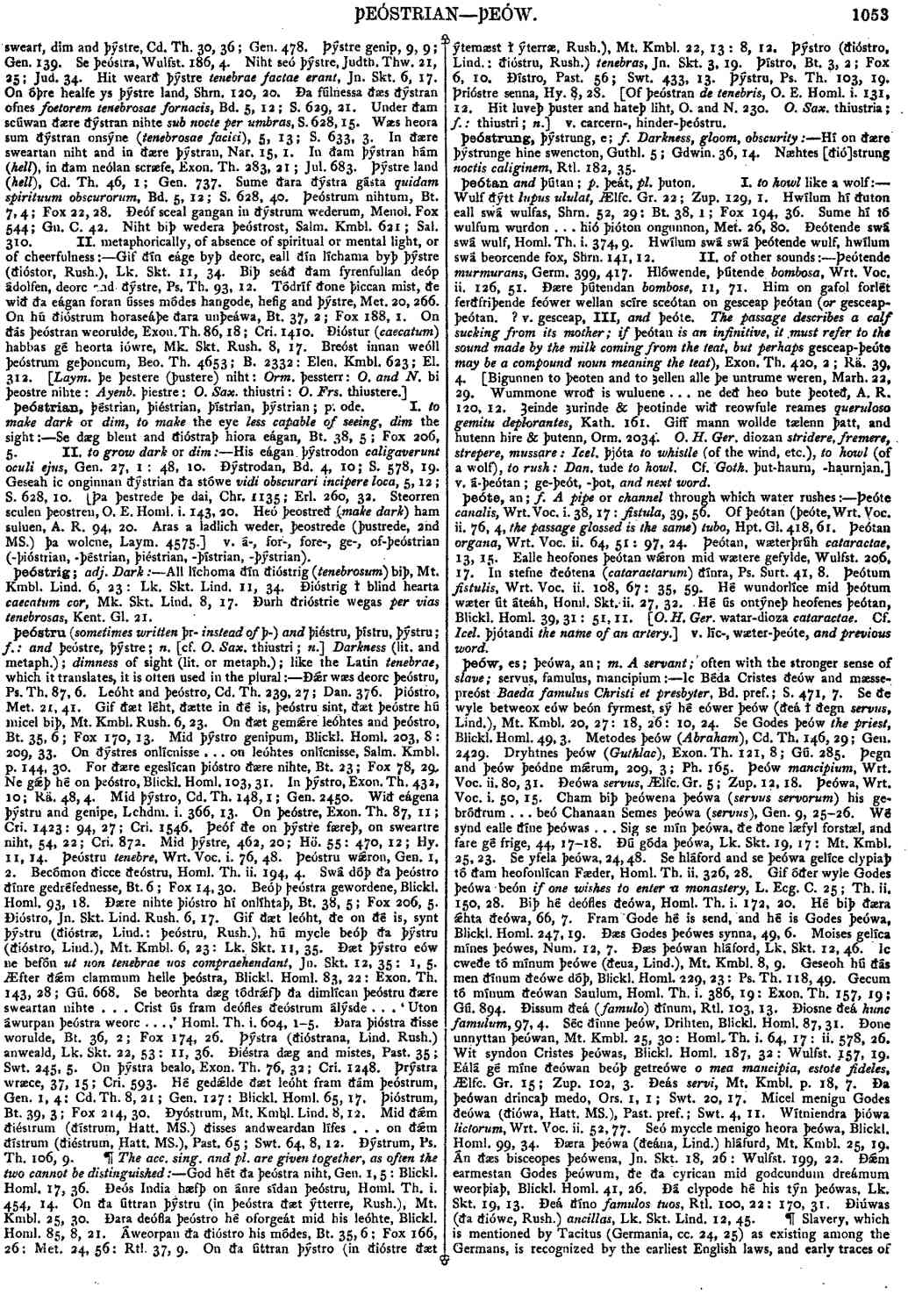þeótan
- verb [ strong ]
-
Wulf ðýtt
lupus ululat,
- Ælfc. Gr. 22; Zup. 129, 1.
-
Hwílum hí ðuton eall swá wulfas,
- Shrn. 52, 29: Bt. 38, 1; Fox 194, 36.
-
Sume hí tó wulfum wurdon ... hió þióton ongunnon,
- Met. 26, 80.
-
Ðeótende swá swá wolf,
- Homl. Th. i. 374, 9.
-
Hwílum swá swá þeótende wulf, hwílum swá beorcende fox,
- Shrn. 141, 12.
-
Þeótende
murmurans,
- Germ. 399. 417.
-
Hlówende, þútende
bombosa,
- Wrt. Voc. ii. 126, 51.
-
Ðære þútendan
bombose,
- 11, 71.
-
Him on gafol forlét ferðfriþende feówer wellan scíre sceótan on gesceap þeótan (
or gesceapþeótan. ? v. gesceap, III, and þeóte. The passage describes a calf sucking from its mother; if þeótan is an infinitive, it must refer to the sound made by the milk coming from the teat, but perhaps gesceap-þeóte may be a compound noun meaning the teat ),
- Exon. Th. 420, 2; Rä. 39, 4.
Bosworth, Joseph. “þeótan.” In An Anglo-Saxon Dictionary Online, edited by Thomas Northcote Toller, Christ Sean, and Ondřej Tichy. Prague: Faculty of Arts, Charles University, 2014. https://bosworthtoller.com/31772.
Checked: 0